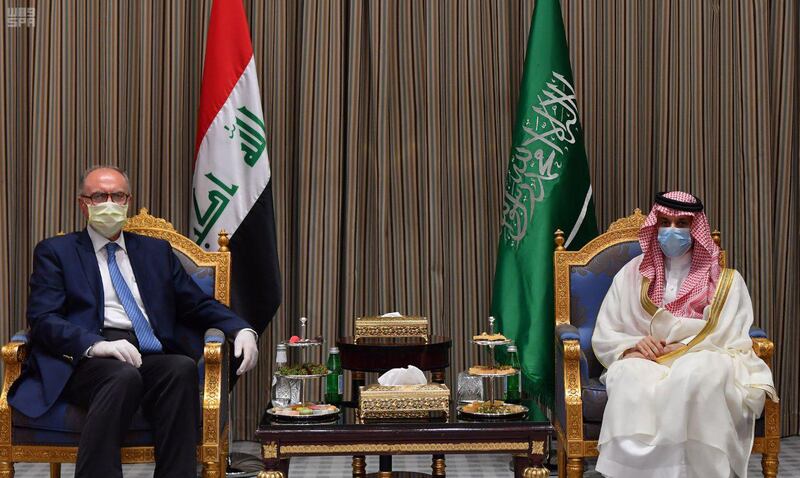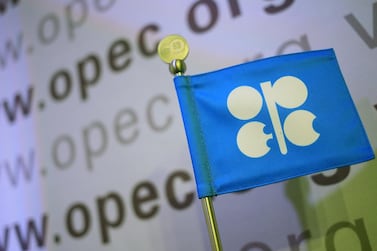Saudi Arabia and Iraq, Opec’s biggest oil producers, agreed to work on rebalancing the oil markets as part of their pledge to cut back more than 9.7 million barrels per day in May and June.
The commitment by both sides followed the visit of Iraq's Deputy Prime Minister Ali Allawi, who is also the country's finance minister and acting oil minister, according to the official Saudi Press Agency.
Riyadh and Baghdad expressed satisfaction at the progress of the cuts, which have helped to drain inventory levels as well as steady prices above $30 per barrel this month.
Opec's second-largest producer Iraq, which has in the past not adhered to slashing production in line with Opec+ agreements, pledged to cut 300,000 barrels per day bringing its total restrictions to just under 700,000 bpd earlier this month.
Opec+ is trimming output by 9.7 million bpd in May and June and will keep drawing back supply until 2022. Opec's core Arab Gulf members are, in addition, cutting an extra two million barrels per day more than their stipulated quotas.
Saudi Arabia, which leads the alliance with Russia, will also cut a further million barrels per day of supply from the markets in June, bringing its total output curbs to 4.8 million bpd. Production for the month of June for the world's largest oil exporter is expected to average 7.492 million bpd.
Kuwait will cut an additional 80,000 bpd, while the UAE is committed to further reductions of 100,000 bpd.
Iraq's net revenue from oil, meanwhile, could fall by as much as 70 per cent this year, as a result of the slowdown in oil demand from the Covid-19 pandemic and supply restrictions in place to rebalance the oil markets, according to the International Energy Agency.
Separately, Saudi Arabia’s oil and gas companies would be allowed to invest in Iraq's western Akkas gas field in Anbar province, the country's largest, which borders Syria, Al Arabiya reported.







